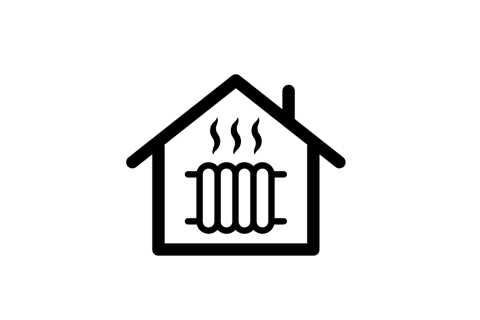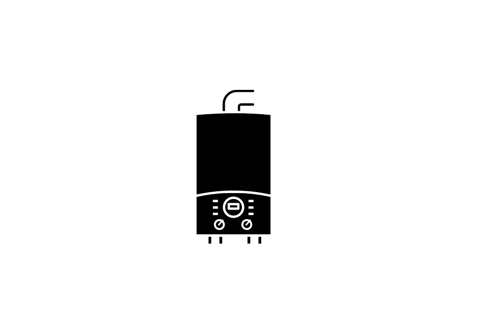Why are long-lasting boilers important to homeowners?

Boilers are the heart and souls of our homes here in the UK. With the cold months being almost unbearable at times, these important machines give us comfort and warmth.
At the soul of your central heating system, boilers are meant as a long-term investment for the future, built to withstand many years.
Get new boiler quotes online >
Whether you are thinking about purchasing a brand new gas boiler or just considering when you’ll have to replace your old trusty boiler, the main question on your mind is probably, ‘How long do boilers last?’.
The truth is, there is no exact answer. There are many factors that can effect the longevity of your boiler, and knowing these can aid you in future circumstances.
Get a Fixed Price >What Is The Average Lifespan Of A Boiler?
You may be wondering, how long do boilers last on average? Well, the average gas boiler usually lasts around 10-15 years, however this can be affected by several things. For example, having your boiler serviced regularly by a gas-safe engineer means that your boiler will be properly looked after, this can lead to a longer-lasting boiler, possibly lasting anywhere from 20-25 years.
Taking care of your boiler is one of the most important things to do when wondering how long your boiler will last, however efficiency rating will drop the older the boiler gets, usually in the 10th year the efficiency of your boiler tends to begin to drop.
What is the lifespan of a combi boiler and system boiler?

- You may ask the question, how long does a combi boiler last? The combi boiler lifespan tends to be 10-15 years depending on certain factors, where as system boilers typically last from around 15-20 years. This is ultimately down to their differences in design and functionality.
- System boilers work together with a hot water cylinder, which means they don’t handle the same rapid changes in temperature that combi boilers do.
The fact that a system boiler operates with a hot water cylinder can reduce the strain on the boiler itself. They often run more consistently at a steady pace, experiencing fewer fluctuations in temperature and pressure, thereby potentially prolonging their lifespan.
What factors impact the lifespan of a central heating system?
One factor that impacts a boiler’s lifespan would be the quality of your boiler, if you buy a well-known branded boiler such as Worcester Bosch or Viessmann, it may be slightly more expensive but it will be more likely to last you longer. These brands are well respected within the industry, hence them having popularity and well-known across the nation.
Another factor would be the servicing and taking care of your boiler. Getting a service for your boiler at the recommended once a year is a huge reason many people’s boilers last for a long time.
Get a Fixed Price >Why is getting a Gas Safe engineer so important?
Having a qualified gas-safe engineer come and take a look at your boiler, checking things like gas pressure and flow, and also checking the flue and combustion. The engineer will be able to spot any problems with your boiler, such as the vaillant boiler egg timer and amend them, leading to a longer-lasting boiler overall.
It can also lead to a maintained warranty from the manufacturer, when you have a brand-new boiler, the manufacturer usually requires you to get an annual service completed to keep your warranty valid, saving you huge repair costs further down the line.
Proper installation of the boiler can also play a part in the longevity of your boiler, having a qualified, professional Gas Safe engineer who knows exactly what they are doing to install the boiler, having this done properly, to a professional standard is one of the many reasons your boiler will last you for many more years to come.
How do I know how old my combi boiler is?
Finding out the exact age of your combi boiler can usually be done by checking its serial number or manufacturing date. This information is often found on a sticker or plate on the boiler itself.

The serial number typically contains a code that shows you the manufacturing date. Sometimes, the first four numbers might represent the year and week of manufacture.
Other times, it might be shown in a different format, so referring to the manufacturer’s guidelines or contacting them directly can help decode the serial number and determine the age of your boiler.
Annual boiler service
One of the main reasons your boiler lasts for a long time would be getting your boiler serviced annually.
A boiler service in the UK is a professional inspection and service check performed by a Gas Safe registered engineer. It involves a thorough examination of the boiler to ensure it’s operating safely and efficiently.
During a boiler service, the engineer will inspect various components, clean parts if necessary, check for leaks or corrosion, test the boiler’s pressure and controls, and ensure it complies with safety standards. They might also perform adjustments or minor repairs to improve it’s overall performance and prevent potential breakdowns.
The cost of a boiler service in the UK typically ranges from £60 to £120, but the actual price can vary based on factors such as the service provider, location, type of boiler, and any additional work required. Some service plans or companies might offer package deals or discounts for regular servicing.
Regular boiler servicing is recommended annually to maintain its efficiency, safety, and longevity. It helps identify any issues early, ensuring the boiler operates optimally and safely throughout its lifespan.
How To Find Out Your Boiler’s Service History
It’s not exactly guaranteed that you can find out Your boiler service history, or when it was last serviced. If the previous owner of the home, or estate agent can’t tell you that information it is recommended to get a service as soon as possible to avoid losing any warranties the boiler may have had.
Get a Fixed Price >How Do I Know It’s Time To Replace My Boiler?
Signs indicating the need for a boiler replacement in the UK include the boiler’s age surpassing 15 years, and the boiler needing constant repairs. A sudden increase in energy bills may also be a sign that the efficiency of your boiler is decreasing the older it gets. Also, unusual noises from the boiler, inconsistent heating or hot water, and or visible signs of damage like leaks or corrosion.
When these signs begin to show, consulting a Gas Safe registered engineer for an assessment is highly important to determine if getting your boiler replaced is necessary.
Benefits Of Replacing Your Old Boiler

Newer boilers are more energy-efficient, potentially reducing energy bills and carbon footprint A new boiler is less likely to break down frequently, providing more consistent heating and hot water.
New boilers adhere to modern safety standards, reducing the risk of potential hazards.
Although the initial investment may be high, a new boiler can save money in the long run through increased efficiency and more cost-effective in terms of repairs.
More efficient boilers contribute to lower carbon emissions, supporting environmental sustainability.
Modern boilers often come with more advanced features allowing better control over heating and hot water, enhancing comfort and convenience at home.
New boilers usually come with warranties and support, providing peace of mind and potential savings on maintenance or repairs.
Replacing an old boiler with a new, efficient model can offer numerous advantages, making it a wise investment for both comfort and economy in the long term.
How To Choose A New Combi Boiler Replacement
The size of your home is important to think bout when it comes to replacing your combi boiler. Combi’s are best suited for smaller homes, with one shower and fewer taps and radiators to be powered at once. If this isn’t the case, then a system boiler may be the correct option for you.
Another point to take into consideration is the demand for hot water in your home, depending on the demand, means you may need a higher Kw of boiler, whereas if you have a smaller-sized home, with less demand for hot water, you may not need one as powerful.
The budget you set yourself for a new boiler replacement is to be considered as the better models and manufacturers may be more expensive initially, however they tend to last more in the long run compared to less known brands. There are usually finance options available when buying a boiler so take that into consideration when thinking about combi boiler replacement.
How Much Does A Replacement Boiler Cost?

On average, a replacement boiler cost can range from £1,500 to £3,500 or more for the boiler unit itself, plus installation fees.
However, this cost can vary widely based on the specific requirements of your home and the type of boiler you select. It’s advised to look at multiple boiler quotes from Gas Safe registered engineers to get an accurate estimate of the replacement cost that will be tailored to your situation.
Get a Fixed Price >FAQ’S
How Can Limescale Affect The Lifespan Of A Boiler?
Limescale can significantly impact a boiler’s lifespan. It decreases efficiency by accumulating on components like the heat exchanger, obstructing the heat transfer and increasing energy consumption.
This build-up also strains the boiler, leading to quicker wear and potential damage, which might result in leaks or malfunctions.
Regular system flushing are vital to prevent these issues, maintaining the boiler’s efficiency and prolonging its lifespan.
Why Is Boiler Efficiency Important?
A boiler’s efficiency directly influences cost savings by lowering energy bills through reduced energy consumption. Secondly, higher efficiency contributes to a smaller environmental footprint by cutting down on carbon emissions.
Additionally, an efficient boiler ensures consistent home comfort by providing reliable heating and hot water without fluctuations. Having the most efficient boiler potentially extends the boiler’s lifespan by minimizing strain and wear, reducing the need for repairs or replacements.
Lastly, sticking to efficiency standards and regulations prevents potential penalties while aligning with environmental guidelines.
Boiler efficiency impacts energy costs as it can lead to high energy bills, environmental impact, home comfort, longevity, and regulatory compliance, making it a highly important consideration for UK homeowners.
What Time Of Year Is Best To Replace Your Boiler?
The best time for a boiler replacement would be in the summer months, if you leave it until the last minute in winter, and your old boiler breaks down, you will need to get it replaced as soon as possible as the freezing weather outside will be thriving.